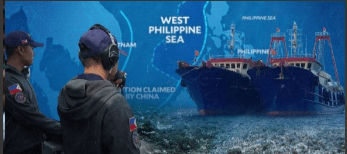
The Philippines’ Ocean Health Index ranking has plummeted to 214th out of 220 countries, a dire situation exacerbated by China’s aggressive campaign to encroach upon Philippine waters.
READ: New York Businesses Ordered to Require Masks Indoors or Vaccine Proof
Philippines
According to the 2023 Ocean Health Index, the Philippines received a dismal score of 58 out of 100, significantly lower than the global average of 73. This marks a stark decline from previous scores of 67 in 2021 and 65 in 2020, indicating a troubling deterioration in marine ecosystem health.
The deterioration is particularly pronounced in the maritime areas on the western side of the Philippine archipelago, known as the West Philippine Sea, which falls within the Philippine exclusive economic zone. This region, renowned for its biodiversity, has become a focal point of China’s ongoing efforts to assert control over Philippine territorial waters, further complicating conservation efforts and exacerbating environmental degradation.
A comprehensive study by the Asia Maritime Transparency Initiative (AMTI) titled “Deep Blue Scars: Environmental Threats to the South China Sea” highlights the significant coral reef damage caused by China’s dredging and landfill operations in Philippine waters over the past decade.
Dredging involves the extraction of silt, sediments, and other materials from the ocean floor, commonly practiced in the West Philippine Sea to create navigable waterways, ports, or for land reclamation purposes. However, this practice can result in the complete removal of essential reef structures, leading to irreparable and long-term damage to the coral reef ecosystem.
Landfill operations, on the other hand, entail the construction of new landmasses using materials dredged from the seabed. These destructive activities, aimed at bolstering territorial claims in the South China Sea, have ravaged over 6,200 acres of coral reef, with China being responsible for 75 percent of the environmental damage.
China’s island-building activities, which involved dredging to create artificial islands, disrupted the seafloor, releasing clouds of abrasive sediment that suffocated nearby marine life and hindered the coral reef’s natural capacity to regenerate.
The dire state of the Philippines’ ocean health underscores the urgent need for action to address China’s encroachment and mitigate the environmental impact of destructive practices. It is imperative for stakeholders to prioritize conservation efforts and safeguard marine ecosystems for future generations.